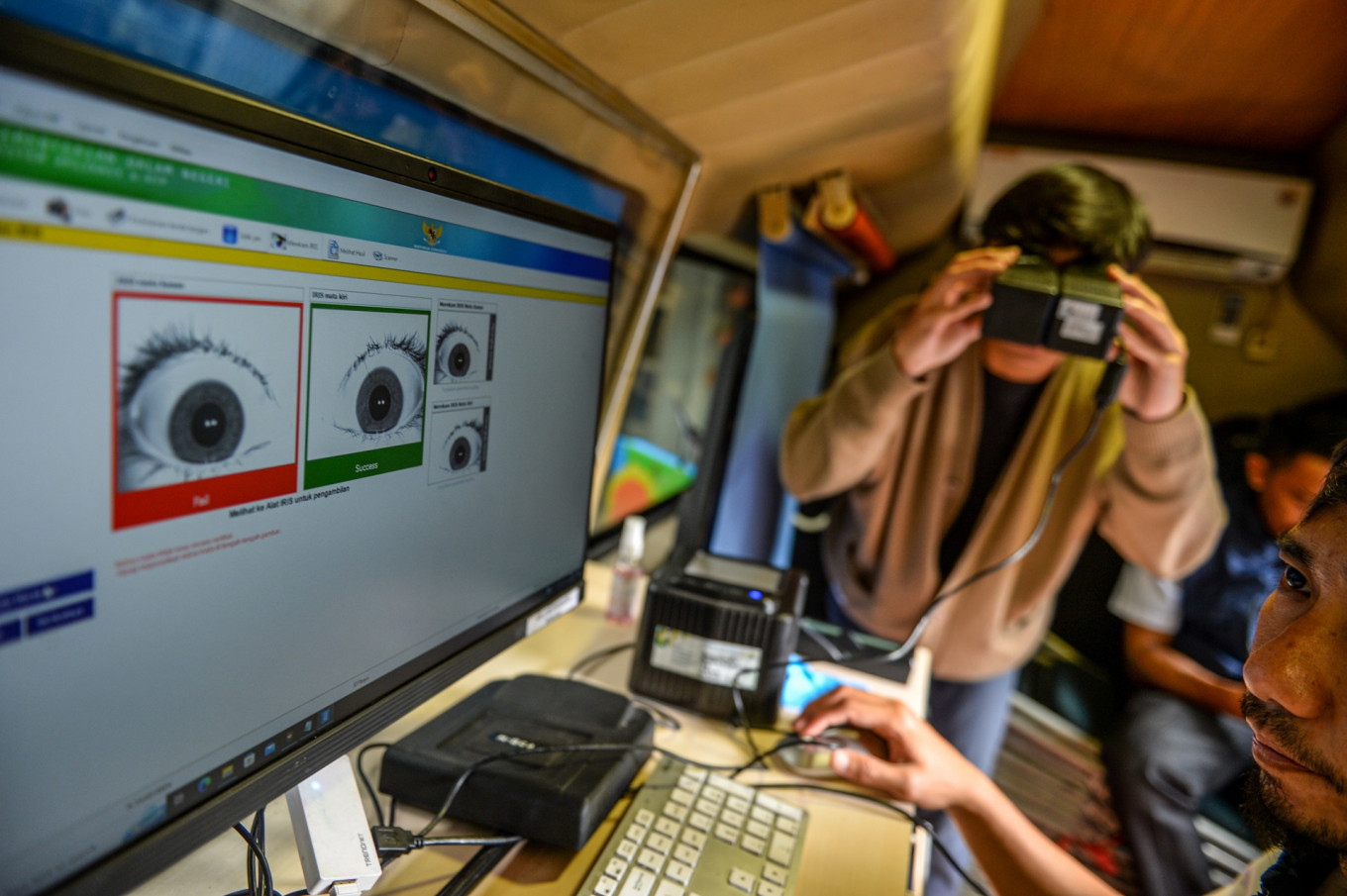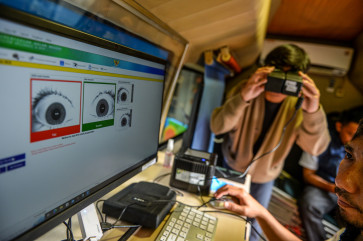Popular Reads
Top Results
Can't find what you're looking for?
View all search resultsPopular Reads
Top Results
Can't find what you're looking for?
View all search resultsWhy governing algorithmic politics in electoral law matters
Today, political consultants employ generative and predictive AI to process voter data and tailor campaign materials to support candidates.
Change text size
Gift Premium Articles
to Anyone
 Tech effect: A student collects data for electronic voter identification on Jan. 24, 2024, at SMA Kartika XIX-1 senior high school in Bandung, West Java. The Bandung administration reached out to high school students to achieve its target figure for first-time voters registered for the 2024 general election. (Antara/Raisan Al Farisi)
Tech effect: A student collects data for electronic voter identification on Jan. 24, 2024, at SMA Kartika XIX-1 senior high school in Bandung, West Java. The Bandung administration reached out to high school students to achieve its target figure for first-time voters registered for the 2024 general election. (Antara/Raisan Al Farisi)
W
hat does ChatGPT say about the revision of the Election Law? If you ask, “What’s the progress on the revision of Indonesia’s Election Law?”, ChatGPT will summarize at least insights from around 535 news reports over the past year.
The artificial intelligence gives at least three main takeaways. First, the revision hasn’t made it into the National Legislative Program. Second, things stirred up after the Constitutional Court issued a decision (No.135/2024) following a judicial review petition from poll watch Perludem. Third, both the General Elections Commission (KPU) and the Home Ministry are still researching to evaluate the current electoral system.
ChatGPT also highlights 10 key issues that often come up in discussions around revising the Election Law. These include separating national and local elections, debates over whether to use an open or closed proportional system, thresholds for parliamentary seats and presidential nomination, as well as rules for digital campaigning.
Grok's response differs, focusing on executive neutrality, political party verification and technology in elections, often referencing government websites. However, both ChatGPT and Grok have shown improved responses since June 19, which were heavily influenced by public officials' opinions.
Phet Sayo, executive director of Engage Media, insists that access to information, and even the power to influence decisions, is heavily shaped by tech companies that develop generative and predictive AI. These AI models essentially decide who emerges as the champion of free speech, with the power to promote certain opinions or information while quietly marginalizing others. Sayo warned this could "justify the power structure".
The situation has raised concerns about bias in political questions. For instance, try asking AI about the characteristics of political parties in Indonesia. The answers seem based on outdated and partisan sources, whereas brief and accurate information about which parties truly represent voters’ values is crucial for first-time voters.
So, in a world where autocomplete is power (as Viegas said in 2025), and political choices shape the future of a nation and its people, we have to ask how much bias is acceptable?


















